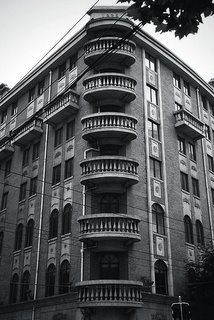He Saw the Lane

Throughout the last three years I’ve been reading Freedom Song, a collection of three novels by Amit Chaudhuri – an author with a talent for enshrining the pleasures of the everyday and of the near waking dream.
Reading these often sensual and evocative stories told partly through a prism of childish wonder, particularly A Strange and Sublime Address – about a ten-year-old’s visit to his uncle’s Calcutta home during summer vacation and Freedom Song about an pleasant extended visit by a woman named Mini to the Calcutta home an old friend – reawakened memories of visiting my maternal grandparent’s home in Bala Cynwyd Pennsylvania and memorably combing through its rooms, hallways and chest drawers on holidays. Chaudhuri’s tales are as much about Calcutta, its myriad lanes and back streets and apartment dwellings where life occurs through sequential unremarkable daily rituals, as they are about the character’s. The novel’s each have spare rudimentary plots - a woman wandering through the silent rooms of a spacious apartment on an early autumn afternoon while everyone else sleeps, a retirement age manager of a financially depressed state-owned candy manufacturer daydreams over his newspaper and cup of tea in a building tucked behind “a huge rusting gate that opened reluctantly to outsiders,” three people on an uneventful car trip to a health clinic on the outskirts of Calcutta. These are the essense of whole chapters. The novellas at moments approach preciousness but not to the point of marring the stories.
I liked especially this passage – “Winter came only once a year, and it changed the city. It gave its people, as they wore their sweaters and mufflers, a sense of having gone somewhere else, the slight sense of wonder and dislocation of being in a foreign city. Even the everyday view from their own houses was a little strange. Smoke traveled everywhere, robbing the sunlight of its fire. Afternoon, with its gentle orange-yellow light, was the warmest time of day, though the wet clothes, assisted by a breeze, dried more slowly than in summer. And as the orange light fell on the brickwork and sides of the houses, it was easier to tell, from the flushed rose center that now appeared on a terrace and now a parapet, that its origins lay in fire.”

0 Comments:
Post a Comment
<< Home